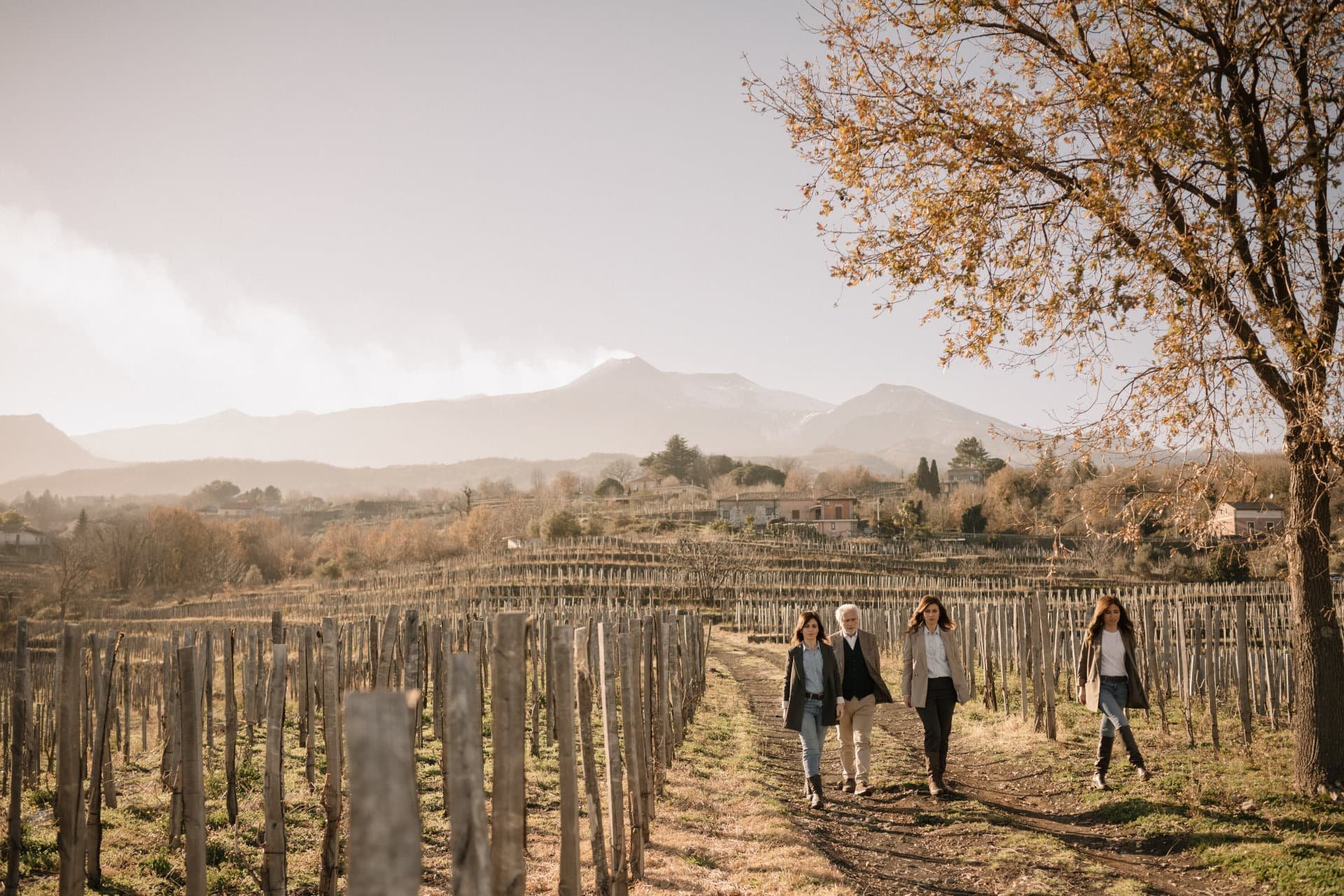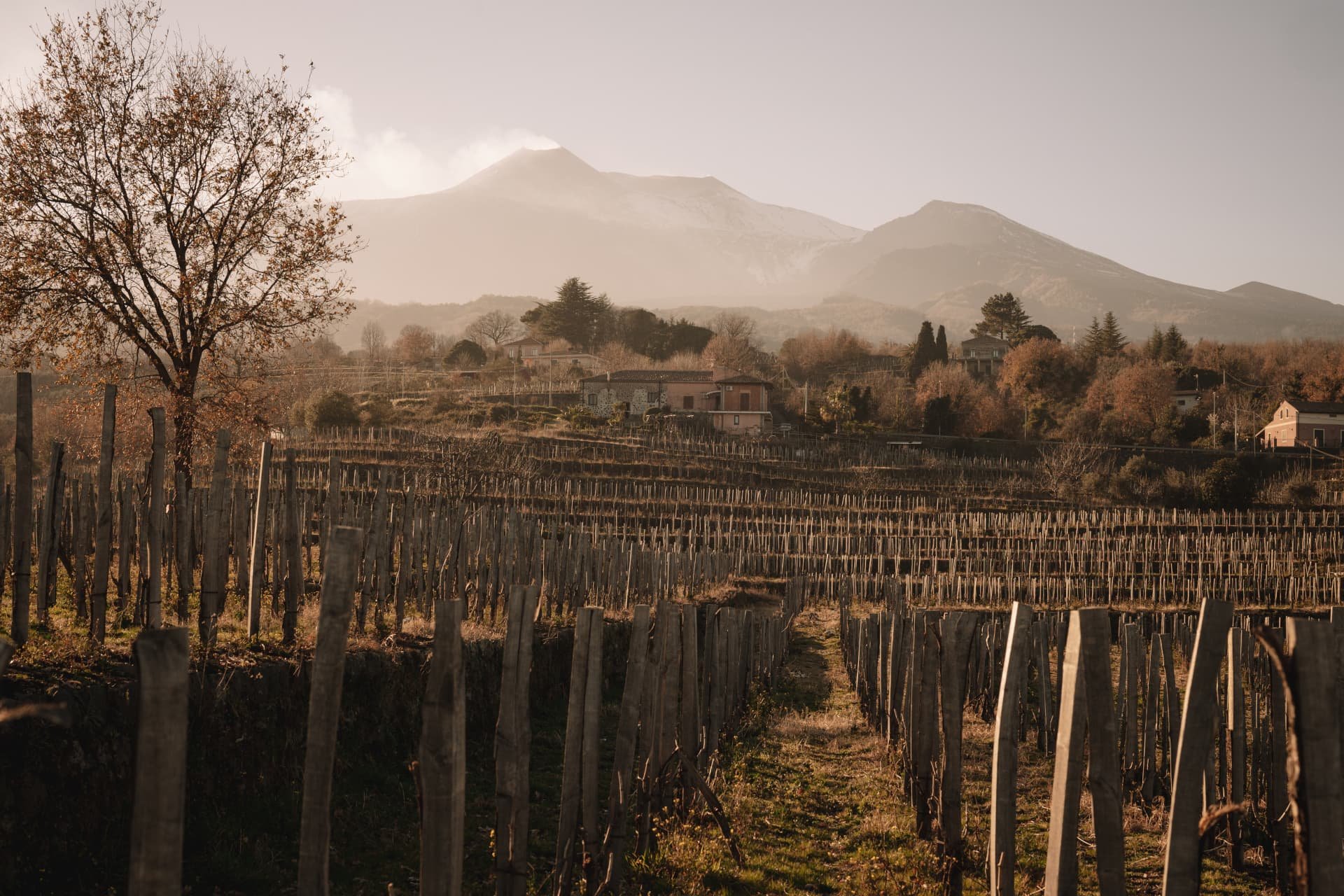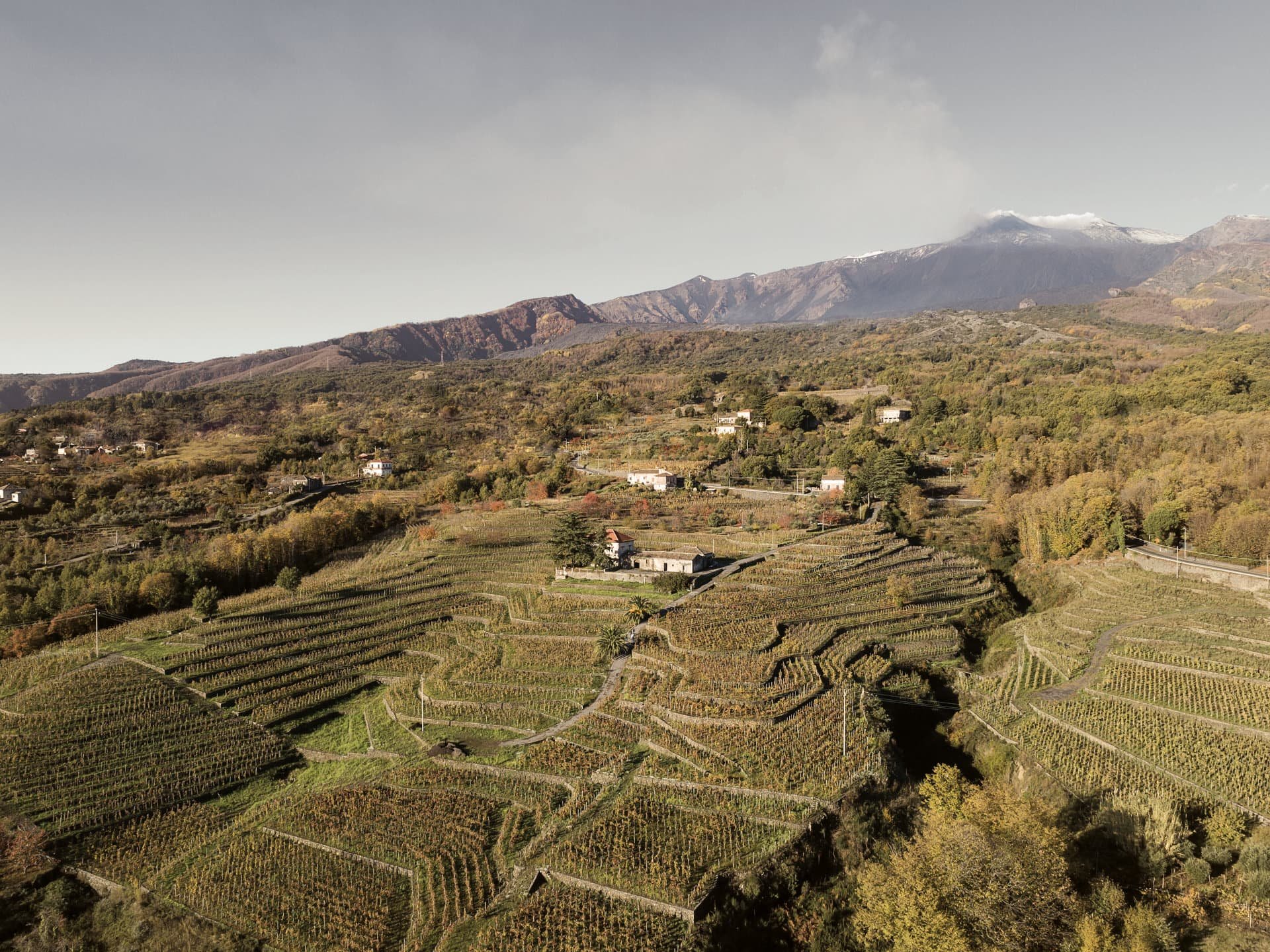Maugeri
ABOUT MAUGERI
Mount Etna, the volcano that dominates the north-eastern corner of the island of Sicily, has become famous for red wine since 2000 or so, and with good reason; the red wines produced on the northern and southern faces of the mountain are among the best in Italy. I think that the white wines grown on the east face of Etna, around the town of Milo, are at least as interesting, mineral and deep and very ageable. (The denomination Etna Bianco Superiore is only given to grapes grown around Milo.)
The Maugeri estate is a relative newcomer, but the wines made here with the guidance of enologist Emiliano Falsini are excellent; they show the distinctive stamp of this appellation very clearly, with neither flaws nor flashy winemaking to get in the way. Mount Etna is one of the best white wine terroirs in Italy, and Maugeri is a perfect example of it.
_____________________________________________
the wines
Etna Rosato DOC Contrada Volpare
Made of Nerello Mascalese grapes grown in sandy decomposed lava soil near Milo, on the east side of Mount Etna. (Nerello Mascalese is the predominant red grape on Etna.) The vines were planted around 2010, on terraces surrounded by dry-stone walls and forest, at about 700 meters (2,300 feet) above sea level. The grapes are harvested by hand, normally in early October; the whole bunches are left in the press at low temperature for a few hours, then pressed, which gives a rosé with a very pale onion-skin pink color. (The grapes are harvested only for this rosé, not as a ‘saignée’.)The wine is fermented, then aged for several months in tonneaux, then bottled in the spring following the vintage. Estate-bottled.
Notes: very pale onion-skin color, pale yellow with a pink glint; striking, complex wine, a kaleidoscope of different aromas and flavors including various berries, and hints of citrus-peel and herbs. One of the best rosé wines I’ve drunk from anywhere, generously fruity but also concentrated and electric on the palate; try it with roast chicken or salmon. (Fine dry rosé is a very versatile wine with food, and not just in the summertime.) I would drink this young for freshness, but I imagine it will hold or perhaps even improve in the bottle.
Etna Bianco Superiore DOC Contrada Volpare
Made entirely of Carricante* grapes grown in sandy decomposed lava soil near Milo, on the east side of Mount Etna. The vines were planted around 2010, on terraces surrounded by dry-stone walls and forest, at about 700 meters (2,300 feet) above sea level. The grapes are usually harvested in early October, by hand, into small picking boxes; they are then taken to the cellar and left in the press at low temperature for six hours, to extract flavors from the skins. The whole bunches are then pressed off, and the juice is inoculated with selected yeasts.
Notes: very pale yellow in the glass; aroma and flavor of wet stones, with hints of mixed Mediterranean herbs and citrus peel; bright acidity in the mouth, palate-staining concentration, lovely minerally white wine. Very reminiscent of Chablis. Estate bottled.
Etna Bianco Superiore DOC Contrada Volpare ‘Frontebosco’
Made entirely of Carricante* grapes grown in sandy decomposed lava soil near Milo, on the east side of Mount Etna. ‘Frontebosco’ is a single vineyard within the Maugeri property. The vines were planted around 2010, on terraces surrounded by dry-stone walls and forest, at about 700 meters (2,300 feet) above sea level. The grapes are usually harvested in early October, by hand, into small picking boxes; they are then taken to the cellar and left in the press at low temperature for six hours, to extract flavors from the skins. The whole bunches are then pressed, and the juice is inoculated with selected yeasts. About 10% of the must is fermented in stainless steel, the remainder in French oak puncheons. After fermentation the wine is aged in these barrels for about another 8 months before bottling; malo-lactic fermentation is not carried out.
Notes: pale yellow color; aroma and flavor of wet stones, with hints of citrus and the wild herbs that surround the vineyard.
This is similar in style and flavor to the Contrada Volpare, but even more mineral, deeper. I know that stones can not in fact migrate from the roots of the vine into the bunch of grapes, but this wine certainly tastes like they do. The better the wine the harder it is to describe, and I am not doing this wine justice; I am afraid you’ll just have to drink it and taste for yourself. Pair with roast chicken, substantial fish dishes, and many pasta dishes.
* The Carricante variety is indigenous to Sicily, and grown almost entirely around Etna. For more information on this (or any) indigenous Italian grape, see Ian d’Agata’s excellent book Native Wine Grapes of Italy.


